News 2018
Portraits of Communication in Neuronal Networks | Under which conditions can messages be exchanged?
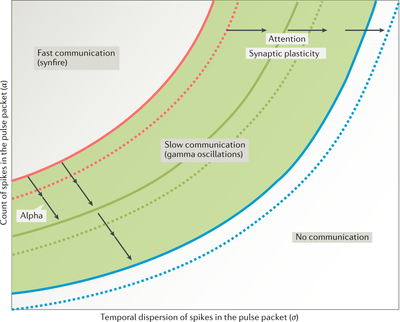
December 17, 2018: The brain is organized as a network of highly specialized networks of spiking neurons. An elementary prerequisite for this to work is that groups of neurons in different networks can communicate with each other. Sparse and weak connectivity and high variability of brain activity makes the communication problem highly non-trivial. So the question arises under which conditions can such communication between neuron groups take place?
Excellent doctorate for Antje Kilias
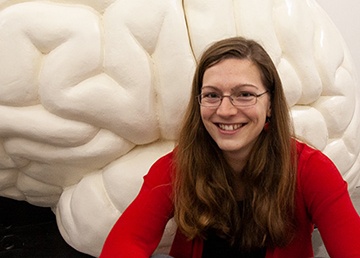
October 29, 2018: The Bernstein Center Freiburg would like to congratulate Antje Kilias on her excellent dissertation on “Theta Oscillations in a Model of Temporal Lobe Epilepsy”. Now the young biologist is planning the next step in her scientific career and would like to remain true to her topic. The Bernstein Center wishes Antje Kilias all the best for this career planning.
Synthetic brain rhythms | Scientists used optogenetic stimulation to induce slow brain rhythms in vivo
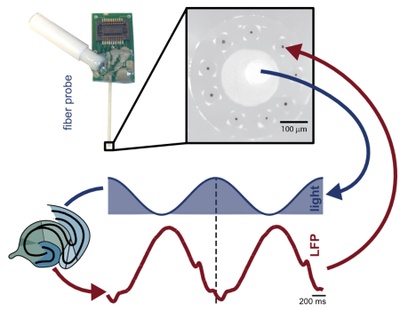
August 21, 2018: Researchers from the Bernstein Center Freiburg and the Massachusetts Institute of Technology used an innovative optogenetic stimulation paradigm to evoke synthetic brain rhythms in vivo. In contrast to conventional optogenetic stimulations protocols that rely on light pulses, this protocol employed continuously modulating light intensities to mimic normal brain rhythms using a new implant. These findings have recently been published in Journal of Neural Engineering, and open up possibilities to cell-specifically dissect the neuronal circuits underlying pathological and physiological slow brain oscillations.
Taking an electrical fingerprint of nerve cells
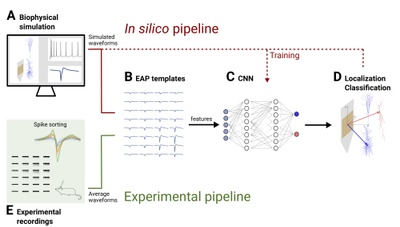
July 16, 2018: Scientists from the Bernstein Center Freiburg and their colleagues from Norway present a framework for the automatized and objective localization and classification of neurons recorded with state-of-the-art high-resolution multi-electrode arrays
Generating knowledge and sharing it with society
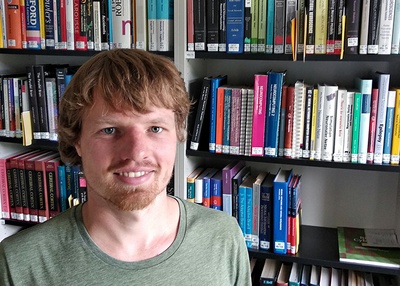
July 12, 2018: This has been the motivation with which Jonathan Schiefer has conducted his research. Now the Bernstein Center Freiburg would like to congratulate him on his successful dissertation on "Inference of multi-scale connectivity in the brain".
Reciprocity of social influence: Who do we take advice from and why?
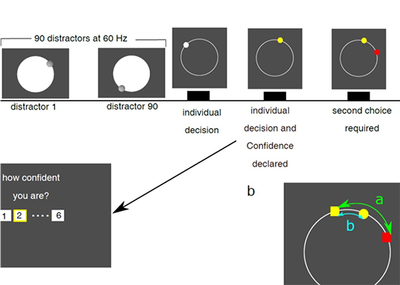
June 28, 2018: New insights in social decision making: our influence on others highly affects how much influence we take from them
Informative Video about the Bernstein Center Freiburg
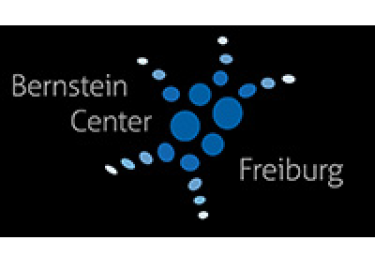
June 20, 2018: Are you interested in briefly seeing what our work is about? Then, watch our video on our Youtube Channel. We wish to thank the Bernstein Network Computational Neuroscience, who instigated this video production and made it financially possible.
Artificial neural networks learn to control biological neuronal networks
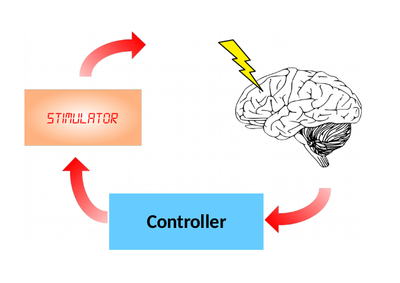
June 8, 2018: It is already common practice to influence brain activity by means of deep brain stimulation – which means through electrical impulses via implanted electrodes – for example in patients suffering from Parkinson's Disease or epilepsy. The effects, however, are still poorly understood. "I send an electrical pulse in, usually in a strictly predetermined rhythm, but even though it works, I'm not sure what the brain does with it and how much depends on the neuronal activity going on in the background," explains Dr. Sreedhar Kumar from the Bernstein Center Freiburg and the Department of Microsystems Technology (IMTEK). "There is no feedback so I cannot react to possible changes in brain activity. It's an open loop." But what if the stimulating system were able to do just that and find the optimal way to stimulate at any moment? This is where the interdisciplinary research project of the Freiburg Neurorobotics Lab, the Bernstein Center Freiburg and the IMTEK comes in.
Great Success for Renato Duarte
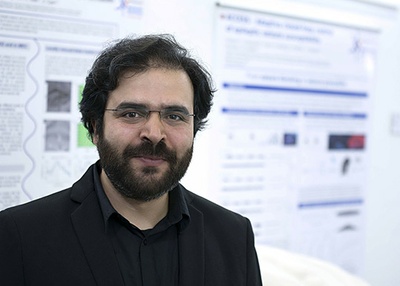
May 17, 2018: The Bernstein Center Freiburg would like to congratulate Renato Duarte on his doctorate. He defended his thesis on "State-dependent processing in spiking neural networks" with excellence.
Which network caused the traffic? | A new approach to infer effective connectivity from fMRI signals
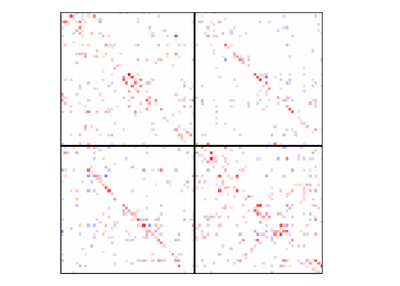
May 02, 2018: An interdisciplinary research team from the Bernstein Center Freiburg and the University Medical Center Freiburg have devised a new approach to infer networks from functional magnetic resonance imaging (fMRI) signals. The new procedures can identify both the direction and the sign of effective interactions in large networks with high fidelity and reliability.
Mesial temporal lobe epilepsy: Large-scale changes of network oscillations?
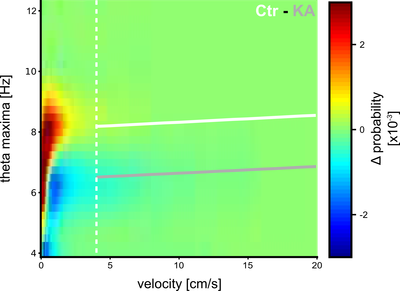
March 03, 2018: Mesial temporal lobe epilepsy (MTLE) is the most common form of focal epilepsies in adults and frequently resistant to anti-epileptic medication. It is characterized by recurrent seizures, pathological restructuring of the hippocampal formation and is often accompanied by cognitive deficits, in particular by impairments of spatial navigation and memory. Changes in a certain type of oscillatory network activity are being discussed as a possible cause of these memory deficits, which in turn were seen in connection with structural changes in the hippocampus. New studies by PhD student Antje Kilias and co-workers from the Bernstein Center Freiburg, the Dept. of Microsystems Engineering, University of Freiburg and the Freiburg University Medical Center, however, suggest other conclusions.
Alternative view on structural plasticity in neuronal networks: Hebbian associative properties can also result from firing rate homeostasis
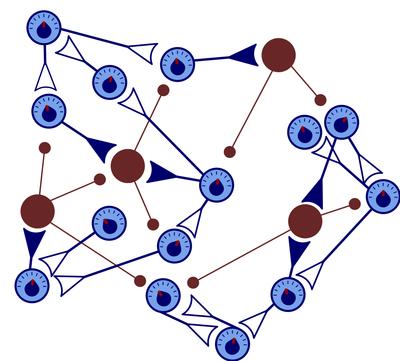
February 20, 2018: Scientists from the Bernstein Center Freiburg demonstrated that Hebbian association in neuronal networks can also emerge from homeostatic plasticity, which is normally thought to exclusively stabilize neuronal activity.

